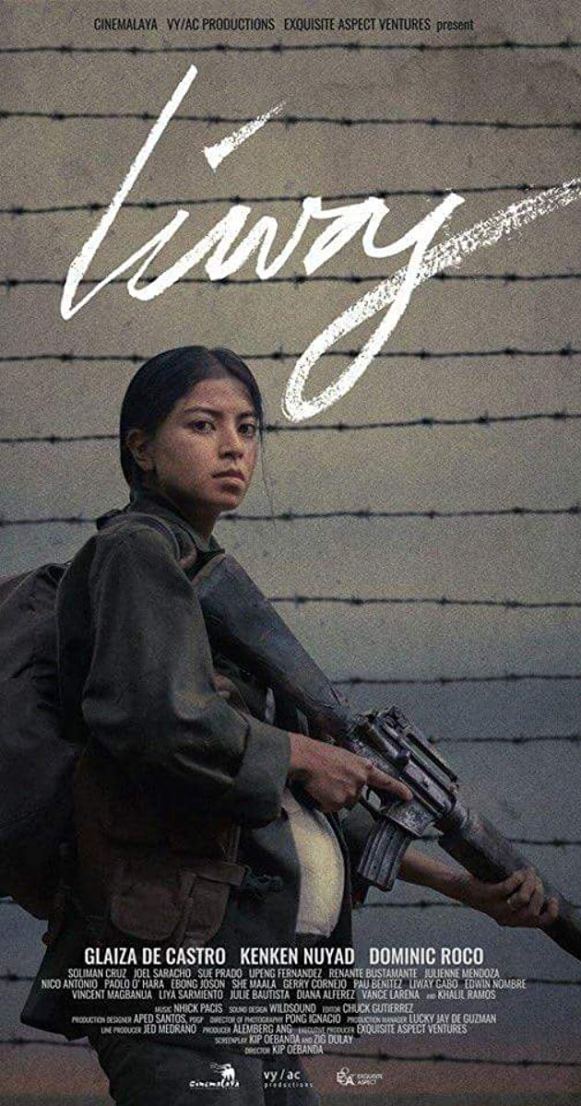By: Heinrich Domingo
Kip Oebanda leaves a part of himself in Liway. He allows us to enter a childhood experience that is so painful and personal. In exchange, he captures the hearts of his audience. While his material is about a significant portion of Philippine history, he uses his personal life as a starting point to retell a dark past. In effect, the narrative became more palatable and the character more empathic.

The film narrates the conditions of families who served as political prisoners during the Marcos dictatorship. It follows the story of Liway, a commander of the New People’s Army in the Visayas. With his husband, Commander Toto, she has to raise her children inside the poor conditions of a prison camp. As their son Dakip (Capture) grows old, they have to narrate to him their tales as captured rebels.
Using shadow play to tell several parts of the plot is an apt method of storytelling. It is especially effective for cinema-goers who have been numbed by the terror and gore of past films that tackle Martial Law. The deliberate, nonviolent depiction is refreshing.
In its first act, the film had a difficult time conveying a solid narrative. It heavily relies on the innocence appeal of Dakip, a 7-year old character. Gladly, the child actor delivers. The audience fell in love with his comedy and wit.
The succeeding acts were the highlight of the film. As it digs deep into the stories of other characters, the audience is presented with a complex socio-political narrative. The film is more than the occasional quips of the child actor. Instead, it offers a serious discourse on how hundreds of lives were lost in order to build the democracy that we enjoy today.
Oebanda, alongside his co-writer, Zig Dulay, has to undergo a difficult challenge of making the crowd empathize with communist rebel characters. Their masterful storytelling was capable of showing the humanity of a group often vilified by popular films and other media. Making the audience understand the plight of the insurgents is a laudable achievement in itself.
Fortunately, the film does not end there. Instead, it proceeds to humanize the communist rebellion during the Marcos regime. It reveals the corruption of the military and the cronies of Marcos. It displays the fanaticism of the president’s followers. As the film ends, the audience has rooted for the plight of the rebels.
The film’s soundtrack works well with the general feel and vibe of the movie. For Martial Law survivors, the songs were reminiscent to the protests and demonstrations during the 70s. For the uninitiated millennials, the songs serve as bridges that bring them to a historical juncture they have yet to experience.
Liway is an important work of cinema, especially in these trying times. As the Marcos family and their cohorts spend millions to brainwash the general public, the film’s director uses his personal narrative to tell a counter-story. Liway is an inspiration to fight back. It calls for resistance.

All movies are interesting. Thank you editor.
LikeLike
Pingback: liway; ang bakas ng nakaraan – deleteraaa